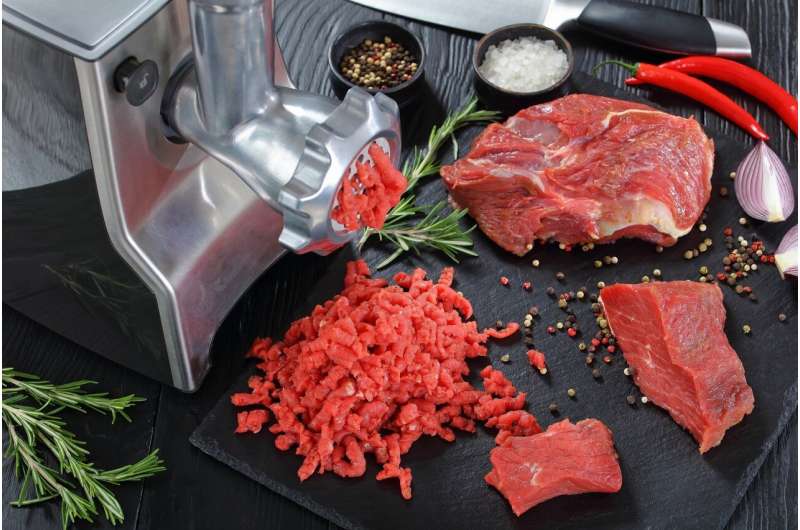Please don't eat raw meat, warns food safety expert

Paparazzi caught Heidi Montag, the former star of the television show, "The Hills," walking around the streets of Los Angeles with a peculiar snack this week—a raw bison heart in a plastic bag. (Stars: They're just like us!)
Montag, who also has filmed herself eating a raw liver, claims to be adhering to a "raw-meat diet" for its health benefits. But while there may be some upside to eating raw meat, Montag's approach was clearly designed more for a photo moment than any actual health advantage, says Darin Detwiler, a food policy and technology expert at Northeastern.
"For people who really buy into a raw-meat diet, it's a lot of work—there's a lot of preparation and consideration about where you're sourcing your meat and how you're storing it," says Detwiler, who is the assistant dean of academic and faculty affairs in Northeastern's College of Professional Studies, and has 30 years of experience shaping federal food policy and advocating for better food-safety protocols. "Getting a piece of meat from the grocery store, throwing it into a plastic bag, and walking around eating it, over time, is going to contradict any actual benefits."
Eating raw meat, in and of itself, is a fairly common practice. Steak tartare, beef carpaccio, kibbeh nayyeh, ossenworst, and koi soi are all popular dishes around the world that feature raw meat. And Detwiler says there may be some health benefits to be gained from avoiding the stove: You may preserve certain vitamins and enzymes that are cooked off in a pan, and people with digestive issues generally have a harder time consuming cooked meat than raw.
But raw meat isn't the only source of vitamins, or the only nutritional option for people with sensitive digestive tracts, and the potential benefits need to be weighed against a serious risk of food-borne illness.
Raw meats, including poultry and beef, typically host all sorts of pathogens that can make someone sick. According to the U.S. Centers for Disease Control and Prevention, most raw poultry contains Campylobacter, and it also may contain Salmonella, Clostridium perfringens, and other bacteria. Raw meat may contain Salmonella, E. coli, Yersinia, and other bacteria. All of these can cause illness.
The CDC also estimates that 48 million people get sick each year from food-borne illnesses, and some are quite severe—128,000 people are hospitalized, and 3,000 die from food-borne pathogens.
That's why the CDC and the U.S. Department of Agriculture recommend cooking poultry and beef to minimum internal temperatures, measures known as "kill steps," Detwiler says.
"The temperatures at which you have to cook steak or ground beef are the temperatures that kill pathogens that would harm us or be passed to others," Detwiler says. "If you're not going to have a kill step, it means you accept all the live pathogens on the product."
People who more regularly eat raw meat typically have a relationship with a butcher who can sell them cuts of beef or organs when they're as fresh as possible, Detwiler says. This cuts down on the time that the meat is exposed to air and the amount of people handling it.
Additionally, many raw-meat menu items also contain lemon juice or another citric acid. While this doesn't eliminate pathogens to the same extent as cooking does, it serves as something of "a partial kill step," Detwiler says.
We don't know where Montag purchased her bison heart, but we do know that mitigating risk while eating raw meat is a lot more complicated than "throwing it in a bag and walking around town eating it like it's a pretzel," Detwiler says.
"You've heard of a meet-cute?" he asks. "Well, there's nothing cute about this. It's just meat."


















